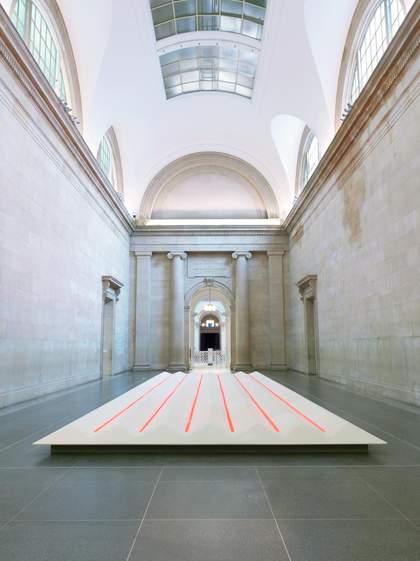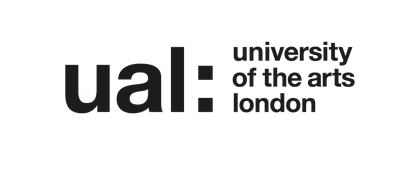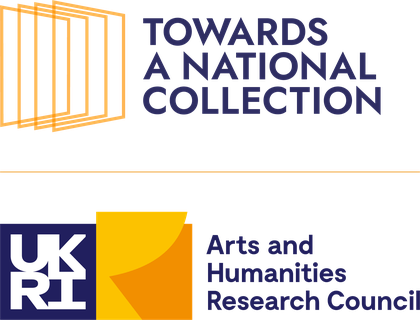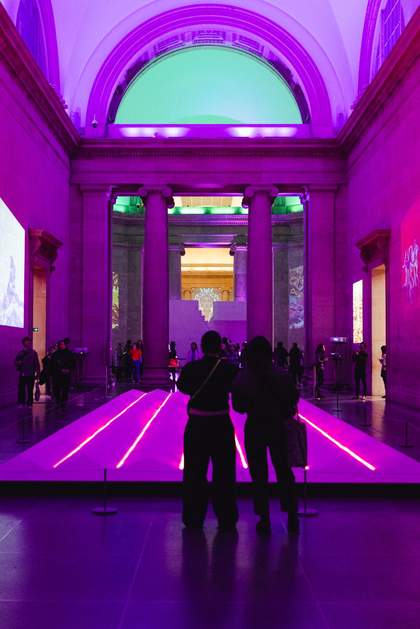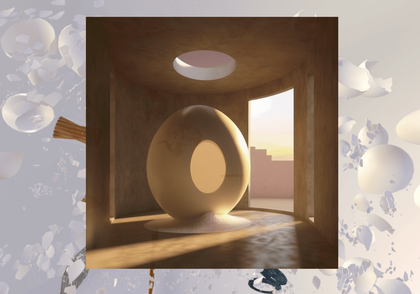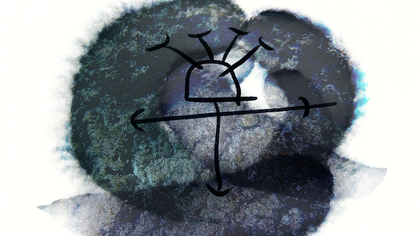The Museum x Machine x Me conference will examine some of the longstanding and new challenges facing museums: the accelerating risks ÔÇô and potential ÔÇô of machine learning in the work of transforming collections; and the critical and creative interventions that can help us to reimagine art, nation and heritage.
The two-day programme will open with a keynote conversation between artist and Professor Stephanie Dinkins and Professor Roopika Risam, followed by four themed sessions exploring:
- What museums ÔÇ£wantÔÇØ
- Giving, Keeping, Caring and Giving Back
- Looking, Listening, Reading and Writing Otherwise
- Re/voicing, Re/sounding Collections
Curated by susan pui san lok (Director of the Decolonising Arts Institute, UAL) and Mark Miller (Director of Learning, Tate).
This event has been provided by Tate Gallery on behalf of Tate Enterprises Ltd.
The Museum x Machine x Me programme aims to share some of the practice research insights and findings generated by the 3-year project, Transforming Collections: Reimagining Art, Nation and Heritage, led Professor susan pui san lok, Director of the University of the Arts London (UAL) Decolonising Arts Institute, in collaboration with the UAL and Creative Computing Institute and Tate, and funded by the Arts and Humanities Research Council.
Programme of Events
Conference
2-3 October, ║┌┴¤╔þ
Late
4 October, Tate Britain
Practice Research Residency Display
2-6 October, ║┌┴¤╔þ
Practice Research Residency Archive Display & Film Screening
5 October, ║┌┴¤╔þ
Wednesday 2 October 2024
Machine Learning Interactive Drop In, 11.00-13.00, Tanks Studio
Ahead of the conference, join the team from the UAL Creative Computing Institute who have developed the machine learning software being used by partner museums and galleries across the UK to explore their collections in new ways.
Day 1 Opening, 14.00-14.30, Starr Cinema
Welcome from Christopher Smith (AHRC Executive Chair) and Maria Balshaw (Director, Tate)
Introduction from susan pui san lok (Principle Investigator, Transforming Collections) and Mark Miller (Director, Tate Learning)
Keynote Conversation, 14.30-15.45
Stephanie Dinkins & Roopika Risam
Stephanie DinkinsÔÇÖ transmedia practice centres emerging technologies and social collaboration toward more equitable ecosystems and future histories, while Roopika RisamÔÇÖs research on data histories and ethics intersects with postcolonial and African diaspora studies and digital humanities.ÔÇ»Their conversation will take ÔÇÿmuseumÔÇÖ, ÔÇÿmachineÔÇÖ and ÔÇÿmeÔÇÖ as entangled points of departure.
Moderated by Dr Ramon Amaro.
Session 1, 16.15-17.45
Museums x Machine Learning:
What do museums ÔÇÿwantÔÇÖ? And ÔÇÿwhat does AI need from us?ÔÇÖ
What do museums ÔÇÿwantÔÇÖ ÔÇô in the sense of desire, need or lack? This session will reflect on the collaborative and interdisciplinary methods developed within the Transforming Collections project, to test and contest disciplinary habits, and to propose the critical, reparative and creative potential of small data and human-centred machine learning (ML) in museums. How can we develop and utilise ML responsibly and ethically, to address new and longstanding challenges facing museums? What is the data? Which humans are centred? And whose museums ÔÇô and heritages ÔÇô are at stake?
Speakers: Prof Mick Grierson & Prof Rebecca Fiebrink; Dr Jon Gillick & Ananda Rutherford. Introduced and moderated by Prof Ewa Luger
Reception, 18.00-20.00, Tanks Foyer
Thursday 3 October 2024
Day 2 Opening, 9.30-9.55
Welcome from David Dibosa (Director, Tate Research & Interpretation)
Introduction from susan pui san lok (Principle Investigator, Transforming Collections) and Mark Miller (Director, Tate Learning)
Session 2, 9.55-11.30
Please Give Generously: Giving, Keeping, Caring Collections
What and how do collections 'keep'? From ÔÇÿkeeping' to 'caring' ÔÇô how do changing political, policy and economic landscapes impact the practices and ethos of collections? How does the language of benevolence and gift-giving reveal or obscure relations of power? What institutional and curatorial strategies might be mobilised to address uncomfortable legacies and suppressed histories? How can museums practice equity and ÔÇÿgenerosity' in a sector facing ever-greater scarcity ÔÇô to redress, restore, and potentially ÔÇÿgive backÔÇÖ?ÔÇ»
Speakers: Dr Tehmina Goskar; Melanie Keen; Dr Alexandre White. Introduced and moderated by Christopher Griffin.
Session 3, 12.00-13.30
Looking, Listening, Reading and Writing Otherwise
The ML development within the Transforming Collections project has been driven by textual and visual analyses, with the aims of surfacing habitual omissions, absences, errors, and underlying ideas, values and relations. The session will focus on alternative approaches to collections and potential object histories, that open up other ways of seeing, hearing and encountering artists and artworks. If art historians, curators, artists and researchers can use machine learning (ML) to navigate and understand collections differently, how might we look, listen, read and write otherwise?ÔÇ»
Speakers: Dr Alice Correia; Dr Anjalie Dalal-Clayton; Dr Andrew Cummings. Introduced and moderated by Elinor Morgan.
Session 4, 15.00-16.10
Re/voicing, Re/sounding Collections
How are collections and archives mutually constituted, entangled and overlapped in ÔÇÿnationalÔÇÖ (and ÔÇÿinternationalÔÇÖ) narratives? How might we attend to the multitudes of unheard voices, within, without and outside museums? This session attends to the ways in which artists and objects can speak out, speak back, sound off and sound out their presence, potential and plenitude, through serious and playful acts of interruption, disruption, resistance, intervention and invention.
Speakers: Dr Charl Landvreugd; Prof susan pui san lok. Introduced and moderated by Anne Barlow.
Closing Remarks, 16.10-17.00
is Senior Researcher for Digital Culture at Nieuwe Instituut, the national museum and institute for architecture, design and digital culture in the Netherlands. Previously. Ramon worked as Lecturer in Art and Visual Cultures of the Global South at UCL (London), Engineering Program Manager for the American Society of Mechanical Engineers, and Quality Design Engineer for General Motors.
Maria Balshaw is Director of Tate, where she has responsibility for ░ı▓╣│┘▒ÔÇÖs strategic direction, working to reframe the context and perspective of this long-established institution. Previously, Maria was Director of the Whitworth, University of Manchester; Director of Manchester City Galleries; and Director of Culture for Manchester City Council. Maria is also on the Steering Committee for Towards a National Collection.
Anne Barlow directs and oversees the overall vision and artistic programming for Tate St Ives.ÔÇ»BarlowÔÇ»was formerly Director of Art in General, New York, and held curatorial roles at the New Museum, New York and Glasgow Museums, Scotland.ÔÇ»She has published and lectured widely, and acted on selection panels including the British Pavilion, 58th Venice Biennale.
is a Research Fellow at the Decolonising Arts Institute, UAL. She is an art historian and curator specializing in late twentieth-century British art, with a particular focus on diaspora artists and feminist and post/de-colonial practices. Her edited book, What is Black Art?: Writings on African, Caribbean and Asian Artists in Britain, 1981-1989, was published by Penguin in 2022.
is an art historian from Wakefield, West Yorkshire. Andrew recently completed a PhD thesis between The Courtauld Institute of Art and Hyundai Tate Research Centre: Transnational, focusing on queer politics and science fiction in work by contemporary artists with East and Southeast Asian heritage.ÔÇ»
is an art historian, focusing on black and brown British artists. As a Research Fellow at UALÔÇÖs Decolonising Arts Institute, she investigates collecting, interpretation and display practices in public museums. Anjalie was a researcher on the AHRC ÔÇÿBlack Artists & ModernismÔÇÖ project, and a Co-investigator on the TaNC Foundation Project Provisional Semantics.ÔÇ»
Dr David Dibosa is Director of Research and Interpretation at Tate. Before his appointment in April 2023, David was the Reader of Museology at UAL. David formed part of the research team that led the project Black Artists and Modernism alongside artist Dame Sonia Boyce. David is currently a Trustee of Art Fund and Chair of Trustees at Whitechapel Gallery.
is a transmedia artist who creates experiences that spark dialogue about race, gender, aging, and our future histories. Her art practice centres emerging technologies, documentary practices, and social collaboration toward more equitable social and technological ecosystems.ÔÇ»
is a Professor at the UAL Creative Computing Institute. Much of RebeccaÔÇÖs current research combines techniques from human-computer interaction and AI to allow people to apply machine learning more effectively to new problems, such as the design of new digital musical instruments, embodied interactions, and humanities scholarship.
is a researcher, music producer, and composer. He joined the Transforming Collections project as a Research Fellow at UAL's Creative Computing Institute. JonÔÇÖs research explores technical, social, and artistic considerations that come into play during creative interactions between people and algorithms, with the goal of designing meaningful, playful, and inclusive experiences.
's research employs novel and traditional research techniques, including qualitative coding and ML to investigate the mechanisms, influences, relationships and structures involved in acquisitions of modern British art by racialised artists to public collections. Tehmina is also Research Curator at the Museum of Cornish Life, Fellow of the Museums Association and a gemmologist.
is Research Leader and co-founder of UAL Creative Computing Institute. His research explores signal processing, machine learning and information retrieval techniques in the Creative Arts and Industries. Hardware and software based on his research has been used by world leading production companies, tech start-ups and artists. He was Principal Investigator on the Artificial Intelligence project MIMIC (2018-2022).ÔÇ»
Christopher Griffin has worked in the Research Department at Tate since 2011, with particular responsibility for art historical research on the collection, including the programmatic publication of Summary texts on collection artworks. He was also the co-editor and editor of Tate Papers, ░ı▓╣│┘▒ÔÇÖs peer-reviewed research journal, between 2015 and 2023.
is Director of Wellcome Collection, a free museum of health and human experience. Previously she was Director and Chief Curator of Iniva. She is an advisor for the Government Art Collection; sits on the Board of Visitors, Pitt Rivers Museum, Oxford; and is a trustee of Raven Row, London. In 2022, she was awarded an Honorary Doctorate by UAL.
is an artist, researcher, educator, and Head of Research and Curatorial Practice at the Stedelijk Museum in Amsterdam. Raised in Rotterdam amid diverse migrant communities, Landvreugd promotes European concepts and language reflecting local sensibilities. A Goldsmiths, Fulbright and Columbia University alumnus, he earned a PhD in Curating Contemporary Art from the Royal College of Art.
is an artist, researcher and writer, exhibiting and publishing nationally and internationally since the 1990s. She is Professor of Contemporary Art at University of the Arts London (UAL), Director of the UAL Decolonising Arts Institute, and Principal Investigator on the AHRC TaNC project, Transforming Collections: Reimagining Art, Nation and Heritage.
ÔÇ»is codirector of the Bridging Responsible AI Divides (BRAID) programme, and codirector of the Responsible NLP Centre for Doctoral Training. Ewa advises industry, government and NGOs on matters of responsible AI and innovation and is a member of both the DCMS college of experts and the leadership council for the Future of Privacy ForumÔÇÖs Centre for Artificial Intelligence.
Mark Miller is Director, Learning across ║┌┴¤╔þ and Tate Britain, Tate St Ives and Tate Liverpool. He has over 25 yearsÔÇÖ experience working in informal learning settings centring art as a generative force for interdisciplinary creative learning engagement. As Director of Learning his role leads the vision, strategy, implementation, and outcomes for creative learning programmes at Tate.ÔÇ»
is Artistic Director, Middlesborough Institute of Modern Art (MIMA), working to develop an institution that responds to its context and publics.ÔÇ»Prior to MIMA, she curated public art projects, residencies, exhibitions, public and education programmes, working in Cambridge, Birmingham, Norwich and London. She is Co-Chair for Disability Arts Online.ÔÇ»
is Associate Professor of Film and Media Studies and of Comparative Literature at Dartmouth College. Dr Risam's research focuses on data histories, ethics, and practices at intersections of postcolonial and African diaspora studies, digital humanities, and critical university studies.
is a researcher with extensive experience in museum collections management. Her focus is on ethical and equitable collections information, the history and role of museum documentation and the digitisation of museum collections. Recent work addresses structural racism in museum cataloguing and object description and the conventions of producing and disseminating collections information.ÔÇ»
is the Executive Chair of the Arts and Humanities Research Council (AHRC) and International Champion for UK Research and Innovation (UKRI). He has been Professor of Ancient History at the University of St Andrews since 2002, and was Director of the British School at Rome, the UKÔÇÖs leading humanities and creative arts research institute overseas, from 2009 to 2017.ÔÇ»
is an Assistant Professor of Sociology and the History of Medicine at Johns Hopkins University. He is a Co-Primary Investigator with Black Beyond Data, a Mellon Foundation funded initiative to recenter Black communities in the stewardship of their past, present, and future data.ÔÇ»
If there are any specific access adjustments you require in order to attend this event, please email ContactTransformingCollections@arts.ac.uk
All ║┌┴¤╔þ entrances are step-free. You can enter via the Turbine Hall and into the Natalie Bell Building on Holland Street, or into the Blavatnik Building on Sumner street.
There are lifts to every floor of the Blavatnik and Natalie Bell buildings. Alternatively you can take the stairs.
- Fully accessible toilets are located on every floor on the concourses.
- A quiet room is available to use in the Natalie Bell Building on Level 4.
- Ear defenders can be borrowed from the Ticket desks.
To help plan your visit to ║┌┴¤╔þ, have a look at our visual story. It includes photographs and information about what you can expect from a visit to the gallery.
For more information before your visit:
- Email hello@tate.org.uk
- Call +44 (0)20 7887 8888 (daily 10.00ÔÇô17.00)

